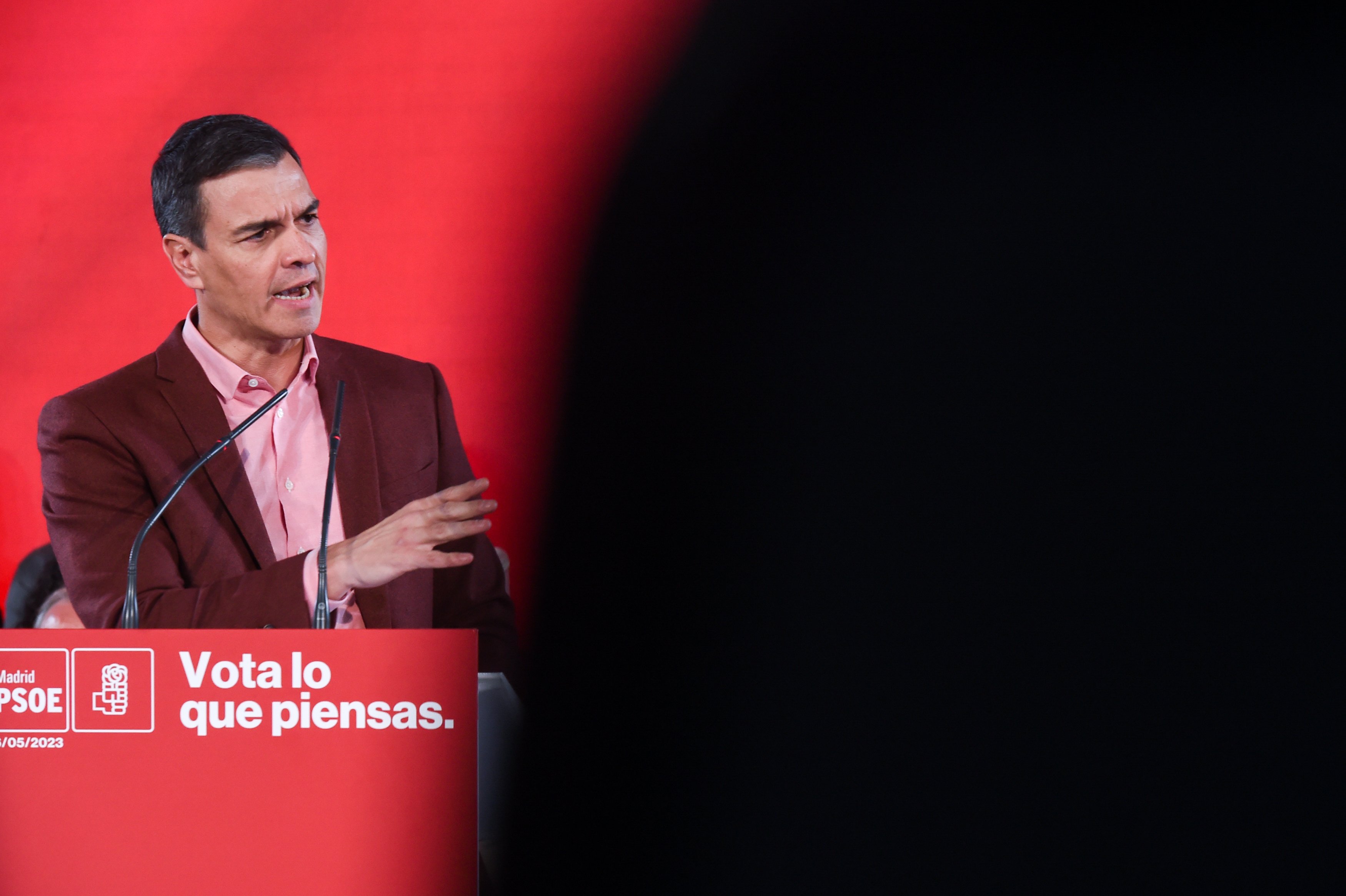Change of strategy at PSOE headquarters. The team of the Spanish prime minister, Pedro Sánchez, has decided to pause the electoral rallies for the 23rd July general election and focus its ammunition on media clashes. The Spanish Socialist (PSOE) leader has been doing the circuit of TV interviews in recent days, not shying away from setting foot into studios which are, in theory, hostile territory, while in the coming days, face-offs and debates with other candidates will arrive. But Sánchez will not participate in as many electoral rallies as usual.
For one thing, the PSOE has not organized a campaign bus or fleet this year for journalists seeking to follow the Socialist electoral race. There are several reasons for this decision. First of all, the time of year and the last-minute nature of the snap election call have meant that the party has not had time to organize a very suitable media route. And, moreover, as Socialist sources have been explaining for days, in this campaign the Spanish PM will simply not be making as many appearances in rallies as at other elections.
This Tuesday, for example, the PSOE reported that Pedro Sánchez will not attend the event that the party will hold on Saturday in Plasencia, in Extremadura; although in the first informations of the week it did appear on his agenda. "He will dedicate the weekend to preparing the debate and to carry out pending commitments with the media", they indicate from the Sánchez laboratory.
Next Monday, in fact, Sánchez has one of the most important appointments in the 23-J electoral calendar: his face-to-face meeting with Alberto Núñez-Feijóo on Atresmedia. The Spanish prime minister's team has high hopes for this encounter. They are convinced that the Socialist has what it takes to win in debates against the People's Party (PP) challenger, since the times when Sánchez and Feijóo have faced each other in the Senate - given that in this legislature the PP leader was a senator, but not an MP in Congress - the leader of the PSOE has emerged as victor.
In general, Sánchez has more nous than Feijóo in face-to-face confrontations - whether he is facing a political opponent or a journalist. That is why the Spanish PM has been constantly urging the leader of the opposition to continue holding meetings between the two. Feijóo has not only avoided this issue (the face-to-face debate will be held with 13 days to go before the elections) but he has also refused, for the time being, to participate in other debates, in which Yolanda Díaz (Sumar) and Santiago Abascal (Vox) will also take part. These three candidates - Díaz, Abascal and Sánchez - will face each other on July 14th at radio station SER and on July 19th at Spanish public television, TVE.
It is, moreover, a strategy completely opposed to that followed by Pedro Sánchez in the campaign leading up to May 28th. Although its true that the Spanish prime minister was not a PSOE candidate in those municipal and autonomous elections, he did not pass through a single TV set or radio studio. What's more, the campaign revolved around rallies with the various candidates around the territory, and advertisements. As much as some of these were recycled, the Spanish PM made use of his government cabinet as a campaign tool. The strategy, in any case, failed: May 28th will go down in history for the overwhelming victory won by the People's Party.

Sánchez takes advantage of the hostile terrain
Pedro Sánchez has decided in this campaign to step boldly into hostile territory, including those media that in recent years have dedicated themselves to criticising his administration; those broadcasters who, as defined by the Socialist leader himself, belong to the "media right". At the beginning of the pre-campaign he fronted up to the microphone of Onda Cero; and more recently, in his interview with El Hormiguero (La Sexta TV) the good results of the strategy were verified.
Pedro Sánchez had a good appearance on the popular programme presented by Pablo Motos, a space known for its animosity towards the Sánchez's policies and pacts with the pro-independence parties. And this Tuesday the Spanish PM met with another key media presenter, Ana Rosa Quintana. His time on the Telecinco set was viewed favourably by his team; this is also confirmed by sources from the Moncloa palace. It is no coincidence that Socialist HQ reported, right after he finished his interview on the Ana Rosa show, that Sánchez will not attend Saturday's rally in Extremadura, to prepare for "pending commitments with the media" .
The campaign officially starts on Thursday evening. Sánchez will participate in an opening event in Madrid at 6pm. Three hours later he will be interviewed again on Telecinco: at 9pm, he will appear on the television network's news set, in their prime time news slot.

